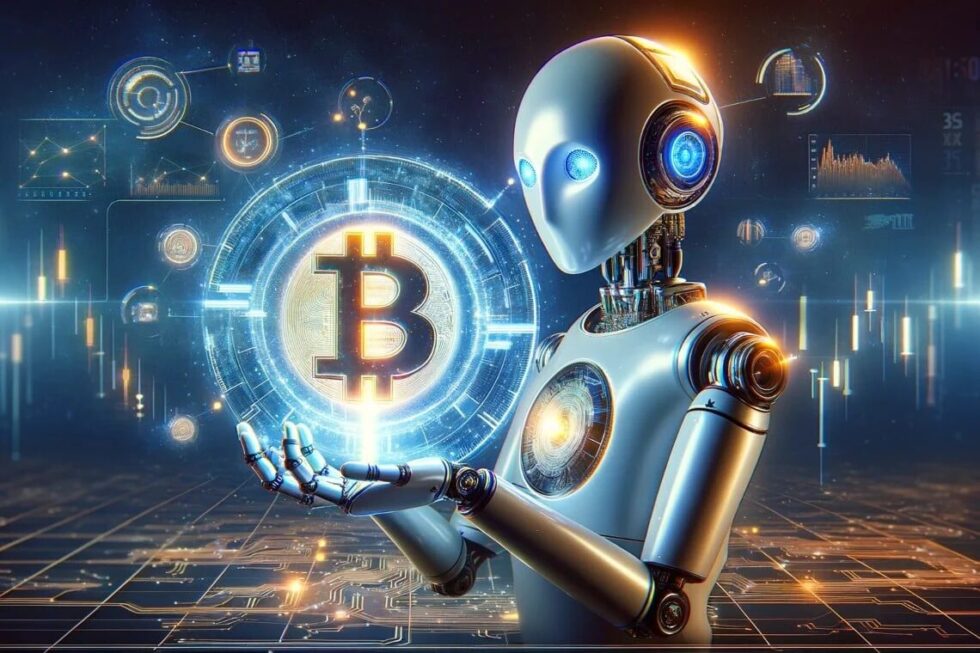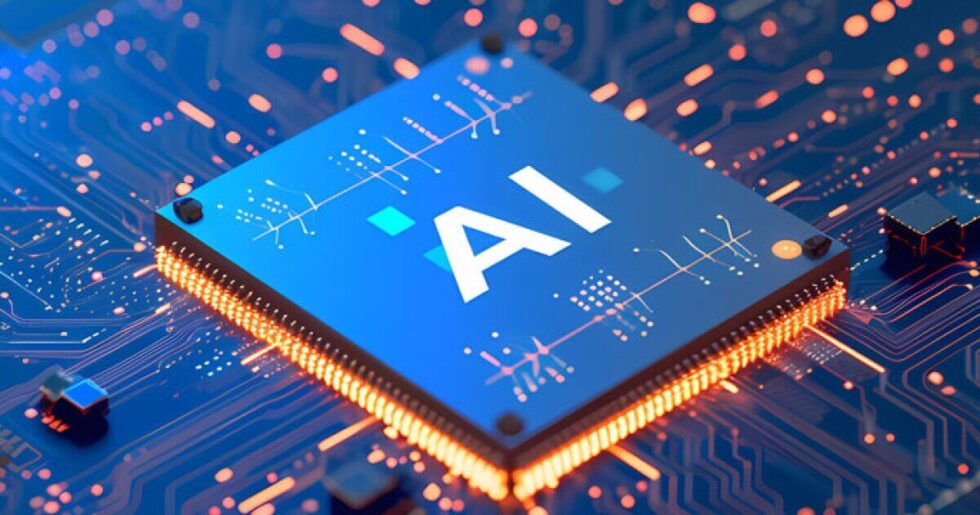How are AI and cryptocurrencies shaping the future in Germany in 2025

AI and cryptocurrencies are among the fastest-growing technologies of the decade, and their convergence is increasingly visible in Germany. Artificial intelligence strengthens blockchain through automation, data analytics, and fraud detection, while decentralized networks provide transparency and immutability for machine learning systems. German fintech companies, universities, and startups are already exploring AI+Crypto applications, particularly in finance, logistics, and energy sectors. Policymakers in Berlin and Frankfurt are monitoring the integration closely, aiming to balance innovation with regulation. For investors, this new ecosystem represents both an opportunity and a challenge, requiring awareness of technical, legal, and ethical aspects. As noted by G.business, Germany may become one of Europe’s leading hubs for AI+Crypto development in the next decade.
AI and blockchain: building a technological alliance in Germany
Artificial intelligence, when combined with blockchain, creates ecosystems that are not only efficient but also verifiable and resistant to manipulation. In Germany, this integration is particularly relevant in finance, healthcare, and the automotive industry. For example, AI-driven fraud detection combined with blockchain-based transaction validation could reduce risks for German banks. In the healthcare system, anonymized patient data could be securely stored on blockchain and analyzed by AI models for faster diagnoses. Automotive giants such as BMW and Volkswagen are experimenting with blockchain-based supply chains, where AI predicts disruptions. German regulators see this as both a chance for innovation and a responsibility to protect data privacy. Universities in Munich and Berlin are now offering joint research programs focused on AI and blockchain. As adoption grows, businesses across Germany will be forced to adapt to these hybrid technologies.
Key areas of AI+Blockchain in Germany:
- AI-enhanced smart contracts for financial services.
- Fraud detection and anti-money laundering tools.
- Secure exchange of medical and insurance data.
- Blockchain-based logistics for automotive supply chains.
- Decentralized data markets for German research institutions.
Decentralized AI – opportunities for the German market
Traditional AI relies on centralized servers often controlled by tech giants, while decentralized AI enables distributed training and ownership of models. Blockchain ensures that every step of model training is transparent and verifiable, giving users more control over their data. In Germany, decentralized AI could empower universities, SMEs, and even individuals to contribute to AI development. Startups in Berlin, Frankfurt, and Hamburg are working on platforms where participants can share computing power or datasets in exchange for tokens. This could help German businesses reduce dependency on U.S. or Chinese corporations. The German AI Strategy (Künstliche Intelligenz Strategie) explicitly highlights blockchain as a supporting technology. With increasing demand for data sovereignty, decentralized AI fits well into Germany’s vision of a secure digital economy.
Advantages of decentralized AI in Germany:
- Data protection aligned with GDPR.
- New revenue models for German SMEs.
- Greater transparency in AI-driven decisions.
- Reduced dependency on U.S. cloud providers.
- Support for Europe’s digital sovereignty strategy.
AI in cryptocurrencies and DeFi: German financial perspectives
The financial sector is where AI and blockchain are most actively merging. In Germany, banks in Frankfurt and fintech hubs in Berlin are already piloting AI+Crypto solutions. Algorithms are used to analyze cryptocurrency markets, predict price fluctuations, and manage decentralized financial protocols (DeFi). Blockchain ensures transparency in peer-to-peer lending and decentralized trading. German investors, both institutional and retail, are increasingly exposed to AI-powered trading platforms. Local fintech startups are experimenting with robo-advisors that combine AI analytics with tokenized assets. For regulators such as BaFin, this presents a dual challenge: fostering innovation while ensuring consumer protection. If successful, Germany could become a model for integrating DeFi with traditional banking.
Examples in Germany:
- AI-based trading bots on European exchanges.
- Machine learning for crypto risk assessment.
- DeFi credit scoring integrated with German banking rules.
- Decentralized investment funds operating in Frankfurt.
- AI-driven compliance checks for BaFin-regulated platforms.
Comparison of leading AI+Crypto projects and their relevance to Germany
| Project | Focus | Characteristics | Token | German Application |
|---|---|---|---|---|
| SingularityNET | AI marketplace | Decentralized AI services | AGIX | Used in German healthcare pilots |
| Fetch.AI | AI for IoT | Autonomous economic agents | FET | Tested in German logistics and energy |
| Ocean Protocol | Data tokenization | Data sharing and monetization | OCEAN | Collaborations with German universities |
| Numerai | AI hedge fund | Crowdsourced trading models | NMR | Frankfurt-based traders using models |
| Cortex | AI in smart contracts | On-chain machine learning | CTXC | German startups in DeFi exploring use |
Challenges and risks for Germany
The integration of AI and cryptocurrencies also presents risks for Germany. Regulatory uncertainty is one of the biggest obstacles, as European frameworks such as MiCA (Markets in Crypto-Assets) are still being implemented. Energy consumption is another challenge, since AI training and blockchain mining can be resource-intensive, and Germany is transitioning away from coal and nuclear energy. Cybersecurity risks also remain, as DeFi platforms are vulnerable to hacks despite blockchain’s resilience. Additionally, there is a shortage of professionals with expertise in both AI and blockchain in Germany, making talent development a national priority. Ethical concerns also emerge, as AI’s ability to deanonymize blockchain data could threaten privacy rights. For Germany, striking a balance between innovation and regulation will be crucial.
Main challenges for Germany:
- Regulatory complexity under EU law.
- High energy consumption in blockchain and AI training.
- Cybersecurity risks in DeFi ecosystems.
- Shortage of AI+Crypto specialists in Germany.
- Ethical concerns about data privacy.
The future of AI+Crypto in Germany
Experts predict that by 2030, Germany will be one of the leading European countries in AI+Crypto adoption. The government’s AI Strategy and blockchain initiatives provide a strong foundation for growth. Fintech hubs in Berlin and Frankfurt, combined with research powerhouses in Munich and Karlsruhe, make Germany a natural leader in this field. By 2025, we may see AI-enhanced smart contracts in German banking, tokenized data marketplaces for universities, and decentralized healthcare platforms. Multinational corporations such as SAP and Deutsche Telekom are already investing in AI+Crypto startups. The future of AI and blockchain in Germany depends on regulation, public trust, and the country’s ability to align innovation with ethical standards. If successful, Germany could serve as a blueprint for Europe’s digital economy.

Expected trends in Germany:
- AI-enhanced smart contracts in finance.
- Tokenization of industrial and academic data.
- AI-driven services in German healthcare.
- Blockchain-secured supply chains in automotive sector.
- Increased foreign investment into German AI+Crypto startups.
German startups leading the AI+Crypto movement
Germany already has a vibrant startup ecosystem, and several companies are positioning themselves at the intersection of AI and blockchain. These initiatives show how theory is being translated into practice across Berlin, Frankfurt, and Munich. They range from fintech platforms that merge AI-based analytics with tokenized assets, to healthcare solutions where patient data is secured on blockchain while AI provides diagnostic support. The presence of accelerators such as TechQuartier in Frankfurt and government-backed programs like High-Tech Gründerfonds further strengthens the growth of this sector. For investors, these startups provide both innovation opportunities and real-world test cases. Germany’s strategy is to foster trust-based ecosystems where AI and blockchain deliver measurable value in regulated environments.
| Startup / Initiative | City | Focus Area | AI+Crypto Application |
|---|---|---|---|
| Peaq | Berlin | Mobility & IoT | AI-driven data monetization for cars using blockchain |
| Gnosis | Berlin | DeFi & prediction markets | Smart contracts powered by AI forecasting models |
| Colendi (DE branch) | Frankfurt | Fintech lending | AI-based credit scoring with blockchain-secured data |
| NeurochainAI | Munich | AI infrastructure | Decentralized training of AI models on blockchain |
| Datarella | Munich | Healthcare & logistics | Secure medical and logistics data combined with AI analytics |
The convergence of AI and cryptocurrencies in Germany represents more than a technological experiment — it is a structural shift in the country’s digital economy. By combining artificial intelligence with blockchain, German industries gain tools for greater efficiency, transparency, and resilience against fraud. Policymakers in Berlin and Frankfurt face the challenge of fostering innovation while ensuring compliance with European standards such as MiCA and GDPR. For startups, universities, and corporations, this integration offers a chance to position Germany as a European leader in AI+Crypto solutions. The coming years will determine whether Germany can transform research and pilot projects into large-scale applications that serve both businesses and citizens. If successful, the country will not only strengthen its economic competitiveness but also set a standard for Europe’s digital future.
Latest events in politics and global economy at Cryptonews – practical tips on how to act and invest. Read: Which Cryptocurrencies Are the Most Popular in Germany Right Now